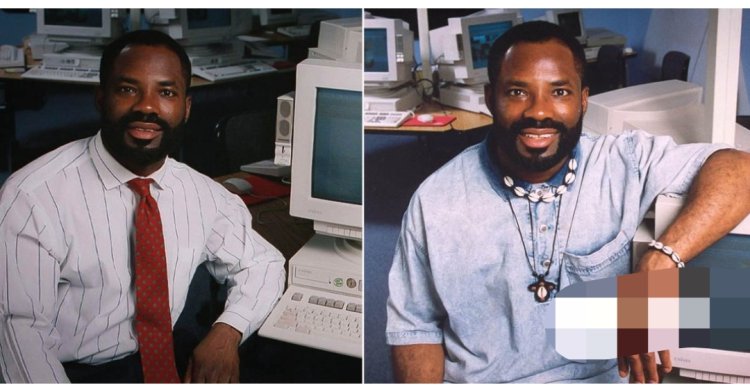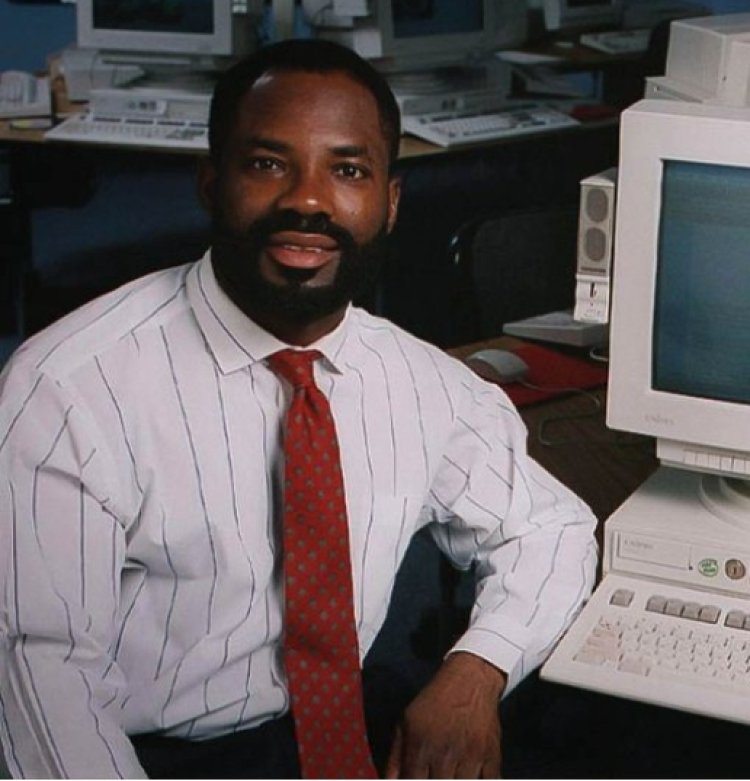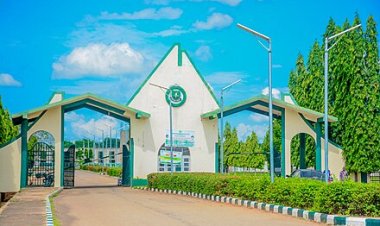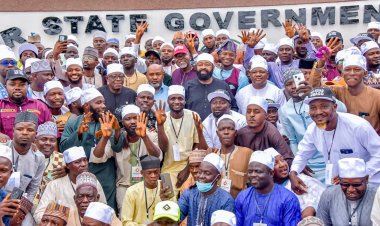Nigerian Innovator Philip Emeagwali, a High School Dropout, Revolutionizes Computing with World's First Supercomputer
Philip's journey began when he had to leave school at the age of 14 due to financial constraints preventing his father from paying school fees. Undeterred, his father continued his education at home, where Philip engaged in daily mental exercises, solving 100 math problems in an hour.

In a remarkable achievement, Philip Emeagwali, a young Nigerian man who faced the challenges of dropping out of high school, has emerged as a pioneer by inventing the world's first supercomputer.Philip Emeagwali, recognized as an engineer, geologist, and computer scientist, has been rewriting history since 1989. He garnered widespread acclaim by winning the Gordon Bell Prize for his groundbreaking formula designed for the use of a Connection Machine, as reported by the Black History website.

Philip's journey began when he had to leave school at the age of 14 due to financial constraints preventing his father from paying school fees. Undeterred, his father continued his education at home, where Philip engaged in daily mental exercises, solving 100 math problems in an hour.
Unable to attend formal school, Philip immersed himself in the public library, dedicating most of his day to self-study. Progressing rapidly through materials appropriate for his age, he delved into college-level subjects, encompassing mathematics, chemistry, physics, and English.
When Philip exhausted the resources of the library, he took the General Certificate of Education exam, passing it successfully. Armed with high school equivalency, he applied to universities in the United States and Europe.
Fortuitously, at the age of 17, Philip was not only admitted but also awarded a full scholarship to Oregon State University in the United States, where he graduated with a bachelor's degree in Mathematics.
RECOMMENDED FOR YOU: 18-Year-Old Achieves Historic Milestone as First Black Male Valedictorian at Oakland High School
Continuing his academic journey, Philip earned a master's degree in Environmental Engineering from George Washington University. His educational pursuits extended further, encompassing a Master's Degree in Applied Mathematics from the University of Maryland and another master's in Ocean, Coastal, and Marine Engineering from George Washington University.
In 1987, Philip embarked on a doctoral program in Civil Engineering at the University of Michigan, focusing his research on simulating the detection of oil reservoirs using a supercomputer.Philip's groundbreaking moment occurred when he discovered the Connection Machine at the Los Alamos National Laboratory. With this discovery, he developed a program that solved a 350-year-old packing problem, deemed one of the greatest unsolved mathematical challenges.
The Connection Machine, employing 65,000 computers linked in parallel, became the world's first supercomputer. Capable of performing 3.1 billion calculations per second, it surpassed the theoretical top speed of the Cray Supercomputer.
INCASE YOU MISSED: 16-year-old boy wins $9million scholarship to study in 170 US universities, sets new world record
Philip's invention earned him the prestigious Institute of Electronics and Electrical Engineers’ Gordon Bell Prize in 1989, likened to the Nobel Prize of computing. Subsequently, he was hailed as one of the fathers of the Internet. Over the years, Philip has garnered over 100 prizes for his groundbreaking work, with Apple Computer incorporating his microprocessor technology into their Power Mac G4 model.
His accolades include being named the Pioneer of the Year by the National Society of Black Engineers and receiving the titles of Scientist of the Year in 1991 and Computer Scientist of the Year by America’s National Technical Association in 1993, among numerous other tributes.Philip Emeagwali's journey stands as an inspiring testament to resilience, self-education, and groundbreaking innovation, showcasing the transformative power of determination and intellectual curiosity.





